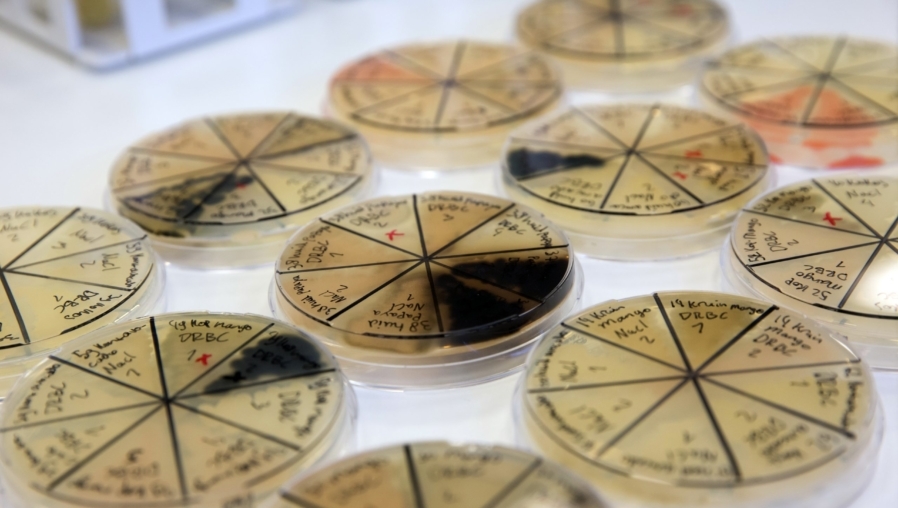A collection of fungi as a treasure trove for the world

Most people who think of fungi almost automatically pull a face. A shame, say scientists at the Westerdijk Institute. They see the possibilities that fungi offer. The institute houses the most diverse living fungus collection in the world. At the Utrecht Science Park, scientists are investigating the enormous range of possible applications of fungi. In the areas of health, agriculture, the environment and industry.
“It is a shame that people find fungi disgusting, because they can be very useful. We come into contact with them a lot without realising it. Fungi are essential in the production of food and drinks such as bread, beer, wine and cheese”, says medical molecular microbiologist Ferry Hagen. But even more important for human health: fungi can contribute to new medical treatments. “For example, a fungus is the basis of the drug penicillin. That was discovered by chance in 1928. They are also used for cholesterol-lowering drugs.”
Groundbreaking innovations
The institute plays a crucial role in the identification, classification and conservation of fungal species. The collection consists of over 120,000 living fungal strains. The collection forms a rich breeding ground for groundbreaking innovations. Fungi are used a lot because of their versatility and ability to produce different substances. Not only for the production of food and medicines, but also for biotechnology and environmental management. “Because fungi are nature’s cleaners. The possibilities are endless. The more we know about the diversity of fungi, the better we can use them. There are many substances that are not yet known. It is estimated that there are millions of species.”
Treasure trove
Ferry continues: “We have been collecting fungi and yeasts for 120 years. It is a treasure trove for the world for the preservation of fungi. We can see exactly how fungi adapt genetically.” Due to the unique collection, the scientific institution is one of the world’s top mycological research institutes that focus on the study of fungi. “The collection is our strength. That is the heart of the institute. We are recording this for the future and want to share our knowledge. Fungi are incredibly important.”
Soil samples
If a new fungus is discovered, the institute would like to have it in the collection. “We also motivate schoolchildren throughout the Netherlands to send in soil samples. We examine them in the hope that we will find fungi. If we discover a new variant, it will be named after the child. This research gives us more knowledge about biodiversity in the soil.” This knowledge helps us to deal with natural resources more sustainably, improve the quality of food and guarantee the health of the planet.
Utrecht Science Park
The location at Utrecht Science Park is an excellent base for collaboration with other knowledge institutions, research institutes, healthcare and companies. “As a group leader for medical fungi, it is nice to be next to UMC Utrecht, the Wilhelmina Children’s Hospital and the Hubrecht Institute. We regularly visit each other. We also carry out joint projects to improve the diagnosis of pathogenic fungi, so how can you determine whether someone has a fungal infection. Together we look at how we can combat the fungus.”
International attention
Furthermore, many students from all kinds of universities, colleges and vocational schools come to visit. The institute also attracts international attention. “We have a colleague from abroad visit us every month. They look at what we do and can immediately visit the UMC Utrecht. The Netherlands has built up a strong reputation in the field of diagnosing fungal infections using DNA techniques. We also train people in that.”
Discover
In the meantime, there is still an enormous potential of fungi in the freezer. “Thousands of fungi that have not yet been studied. We are tackling it step by step. If there were a research budget, we could really spend time on it. They may produce substances that we can do something with. That is what is so great about our collection. With us, you can discover something special every day.”
Sources: Westerdijk Institute and Utrecht, Heart of Health